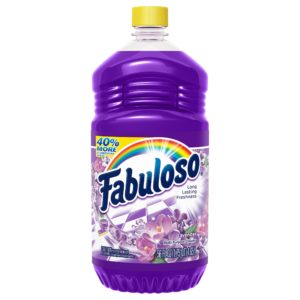Horse stem cells to the rescue, the poisoning continues, foods of doom, and more
18 Sep 2021
Posted by Andrew Kantor
Shout-out to Robert Bowles
GPhA Past President (2008-09) Robert Bowles was presented with the introductory Robert Bowles 2021 Dementia Advocate of the Year Award, honoring his “dedication of time, effort, and resources in the fight to spread awareness and offer necessary support to individuals and caretakers touched by dementia.”

Is that long Covid or are you just trying to get rid of me?
As the U.S. begins a large study of long Covid — thought to affect up to a third of Covid-19 survivors — there’s some potential good news out of the U.K.
An analysis by the Brits’ Office of National Statistics found that it may be a lot less common than thought.
When asked if they had long Covid, about 12% of people aid yes. But when asked about specific symptoms — and then compared to people who didn’t have Covid — the number dropped to 3.0%.
[I]t’s possible normal bouts of ill health could be mistaken for long Covid—which has symptoms like fever, muscle aches, tiredness, diarrhoea and cough—the study found, making long Covid seem more common than it actually is.
The Neverending Story
It’s good to know the whole Purdue Pharma mess is behind us, even for those who don’t think the final settlement penalized the Sackler family enough. We can get on with the — oh, wait just a minute. “DOJ Moves To Block The Purdue Pharma Bankruptcy Deal That Shields The Sacklers.”
Just say “Neigh” to MRSA
A new MRSA treatment might come from … horses. Specifically, equine stem cells, according to veterinary researchers at Cornell.
They expected these cells (equine mesenchymal stromal cells, or MSCs) would help with tissue regeneration. That was true, but only a few of the cells actually did that stem-cell differentiation thing. Instead, it turned out that it was secretions from the horses’ cells playing a big role.
Well well well. Further testing found those secretions also prevented a MRSA infection from spreading — they “stimulated the surrounding skin cells to build up a defense against the bacterial invader.”
This could be good news for horses and people, both of which often end up with hard-to-treat chronic wounds.

Quickie booster news
Israel reports that Covid-vaccine boosters for people over 60 do work. Based on data for 1,137,804 people…
At least 12 days after the booster dose, the rate of confirmed infection was lower in the booster group than in the nonbooster group by a factor of 11.3; the rate of severe illness was lower by a factor of 19.5.
Whether they’re necessary — that’s a whole other topic.
“mRNA or nothing”?
Arnaud Bernaert, former head of Global Health and Healthcare at the World Economic Forum, commented a couple of weeks ago, “I think it’s game over. I think it’s mRNA or nothing. [Other technology] takes too long.”
But is that true? Will mRNA vaccines replace all the others? If you’re skeptical, you’re not alone. In fact, North Carolina State asked three experts that very question. Their answer: Nope — if for no other reason than making them is hard.
“Plus, not every vaccine technology works for every target. We can draw up all kinds of vaccines that work great on paper, but Mother Nature doesn’t read the textbooks. She does her own thing. At the end of the day, we use the vaccines that she and the immune system say works.”
Just … just stop

The American Association of Poison Control Centers says Americans are continuing to poison themselves at high rates thanks to … well, you can guess why. And no, it’s not ivermectin (which shouldn’t poison anyone who gets it from a pharmacist — it’s the ones who buy it from the feed store who are causing the problems).
There were also over 17,000 poison control calls involving disinfectants, nearly 23,000 about hand sanitizer and around 30,000 on bleach through September 6, respectively up 23%, 58% and 7% from the same period in 2019.
And no, it’s not just people intentionally drinking this stuff — in some cases it’s because we’re all cleaning and disinfecting more and not keeping Little Suzy away from the tasty looking grape Fabuloso.
Elsewhere: Battling Hypocrisy edition
Arkansas’s Conway Regional Health System was dealing with a whole lotta people who suddenly found religion — specifically, the religion that would exempt them from having to be vaccinated for Covid-19. The problem, they claimed, was that fetal cell lines were used in the development and testing of the vaccines. (They didn’t have this problem with the flu vaccine, by the way.)
Fine, said the hospital. Sign here. Oh, and by the way, you’re also attesting that you won’t use any medication developed this way — and here’s a list.
The list includes Tylenol, Pepto Bismol, aspirin, Tums, Lipitor, Senokot, Motrin, ibuprofen, Maalox, Ex-Lax, Benadryl, Sudafed, albuterol, Preparation H, MMR vaccine, Claritin, Zoloft, Prilosec OTC, and azithromycin.
The hospital says it’s meant as an educational moment. It certainly wouldn’t use violation of the signed agreement as a reason to terminate anyone, would it?
Food for thought (and death)
CDC researchers have identified 28 foods that each caused a ‘novel disease outbreak’ between 2007 and 2016. (That is, these foods hadn’t caused an outbreak before 2007.)
A total of 36 outbreaks were linked to the 28 novel food vehicles during 2007–2016, and 7 foods were implicated in >1 outbreak (bison meat, blueberries, hazelnuts, kale, papaya, pepper, and pistachios). These 36 outbreaks resulted in 1,294 illnesses, 263 hospitalizations, 14 deaths, and 17 recalls.
The list, if you’re interested: Almaco jack (fish), apple, bison, blueberries, carp, cashews, chia seed, frog, goose, hazelnuts, kale, lima beans, lionfish, mini peppers, monchong, moringa leaf, papaya, pepper, pine nuts, pistachios, pomegranate, sheep milk, skate, sprouted nut butter, sugar cane, swai, tempeh, and wheat flour.


